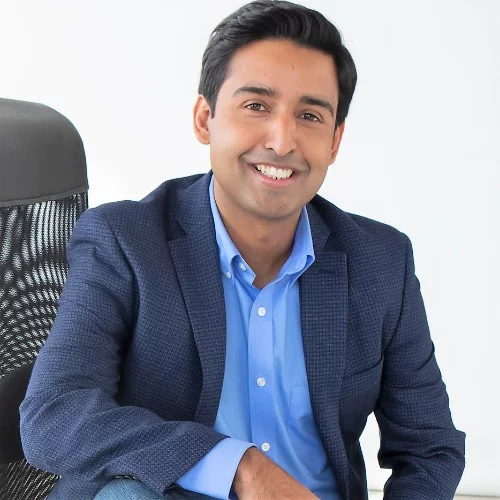Ahead of the IBM CDO Summit on May 1-2 in San Francisco, we have been holding a series of interviews with some of the leading Chief Data Officers and Chief Analytics Officers who will be speaking at the exclusive, free-to-attend event. This time, Corinium’s Chief Data Officer Community Director, James Bowater, sat down with Sriram Krishnan, Vice President, Data Technologies & Governance at Cambia Health Solutions to explore how to balance your team between Data Scientists and Data Engineers, as well as the importance of good data governance, potential uses of cloud technologies, ensuring your data delivers value to your organization, as well as using analytics to drive an outstanding customer experience.
Sriram Krishnan owns all things Data across all of Cambia & its portfolio companies. He sets vision for Data Engineering (on-premises & Cloud teams), Data Governance & Enterprise BI teams and is responsible for driving the execution of enterprise-wide data strategy and data management innovation, and shaping Cambia’s core data and consumer experience strategies. Sriram’s responsibilities also include ensuring Cambia is an industry leader in leveraging data as an asset and a means to engage more intimately with members, consumers, and partners across all portfolio companies and solutions.
James Bowater: At the IBM CDO Summit you’ll be speaking on the topic of striking the right balance between Data Science and Data Engineering. Whilst these two roles are slowly becoming more consistently defined across organizations, what do you view as the distinction between the two?
Sriram Krishnan: The main distinction I see is engineers learn to build, whereas scientists build to learn. Skill sets also differ in both cases. For engineers, we mainly look for sustainable and scalable engineering best practices and generic algorithmic skills. For data scientists, we look for mathematical/statistical abilities as well as machine learning/natural language processing algorithmic skills.
James Bowater: Whilst everyone loves to find ‘Unicorns’ who can do it all, they are of course a rare breed. How do you balance different, complimentary skill sets within your teams? Are you data science focused, engineer heavy, or roughly 50/50?
Sriram Krishnan: We do have unicorns who can do both, but they are very rare. We have teams that are data science focused and teams that are engineering focused, and they both work together to deliver scalable solutions to create value for our customers. Having two different teams and having their own specific goals would help these teams to focus and deliver.
James Bowater: What do you think the impact of getting this balance wrong can be?
Sriram Krishnan: If there is imbalance, you cannot deliver a usable solution. The end application will suffer in delivering value to your customers. There will also be attrition if the focus is heavily on one side.
James Bowater: And how do you ensure a clear division of responsibilities between each role, whilst also ensuring a collaborative environment?
Sriram Krishnan: The boundaries need to be drawn clearly between data engineering and data science teams. The main responsibilities of data engineering team in our company are data ingestion from source systems, data cleansing, data normalization, data profiling for data quality metrics and capturing of meta data. The engineering team builds services to make these processes happen. Customers of this output is data science team. Data science team uses these data sets and creates their ML/NLP models and they work with data engineering team to operationalize their models to run in production. Data engineering team takes this output and expose it to applications using different API’s/services/data visualization technologies.
Both the teams know that they are interdependent on each other to deliver value to their customers. Both teams should be held accountable for delivering customer value after every sprint and it can be monitored through joint sprint demos & other agile processes.
James Bowater: Of course, even the best models are only as good as the data that is fed into them, and so ‘establishing a sustainable approach to ensure well governed data in the long term’ is critical. What do you think the essential pillars of good governance are?
Sriram Krishnan:
The essential pillars of data governance are data quality, meta data management, master data management, information lifecycle management, security and privacy. This is where a strong data governance team comes into play, to be your partners to build a secure and sustainable data management practices, reduce data risks, and help you realize the full value of your data.
James Bowater: What is your view of cloud technologies? Do you utilize them, and if so, do you follow a private, public, or hybrid approach?
Sriram Krishnan: Cloud technologies have helped us immensely in prototyping and testing our data science models rapidly. We do utilize them and we use public cloud offerings as needed. We also use cloud technologies to serve our internal business customers to have fast, efficient, real-time solutions to their business needs. The main focus is on authentication & data authorization, to make sure right people have access to right set of data, as our industry is highly regulated and has to respect HIPPA compliant standards. We also make sure our access patterns allow highly secure way to store & retrieve data for our internal end users. Security & Privacy are extremely important to us in delivering solutions using cloud.
James Bowater: The ultimate goal of any data & analytics function is to utilize their data as an asset, and provide value to the wider organization – what steps have you taken towards this goal at Cambia?
Sriram Krishnan: At Cambia, our Cause is to serve as a catalyst to transform health care, creating a person-focused and economically sustainable health care system. We put our customers in the middle and help them manage their own health care, from birth to end of life. We use data and data science to build personalized health care, as needs of each customer are different. We build data science solutions using machine learning/ A.I.-based techniques to achieve this cause. Through our various businesses within Cambia and partnerships throughout the industry we provide many first-to-market solutions and help create truly person-focused care for people and their families. Our tools bring transparency to a complex health care landscape.
We have also stood up a very solid data governance team, as clean & fit for purpose data helps to deliver personalized solutions. The Data Governance team has been empowered to bring all data domains under data governance. They do this by working with individual teams to help them manage their own data domains and follow data governance best practices. The Data Engineering team has been tasked with building tools to implement data governance across the company.
James Bowater: I know that you’ve also been involved in using data & analytics to supercharge your consumer experience strategies, what has this work looked like?
Sriram Krishnan: We have seen some early wins in implementing data access controls, data quality, master data management & security/privacy. One example is that we used our AI capabilities to create a 360 view of our customers, so that care analysts can reach out to the relevant customer and provide appropriate care. Our solutions also help customers find relevant providers based on their needs and help them manage their care. This is a long journey and we know we are in the right path to create value for our customers and also reduce risk for the organization.
James Bowater: Absolutely. Thanks for taking the time to share you’re insights, and I look forward to hearing more at the IBM CDO Summit.
Be sure to check out our other speaker interviews and exclusive content and , and apply for your complimentary place at the IBM CDO Summit in San Francisco on May 1 – 2. The event is the must attend, invite-only gathering for 120+ CDOs, CAOs, and other senior data & analytics leaders. It is just 1.5 days long, free to attend for all who qualify, and open exclusively to senior executives. There are no sales pitches, and the focus is on genuine interaction and conversation with speakers and attendees, rather than slide decks. We hope to see you there!








